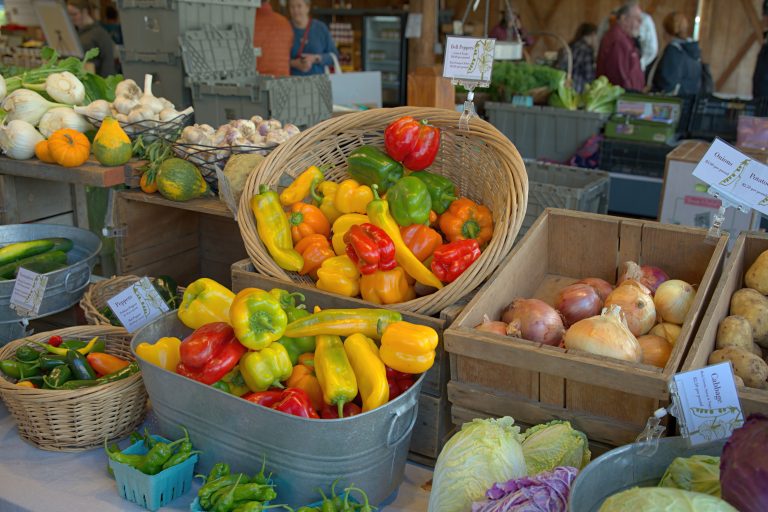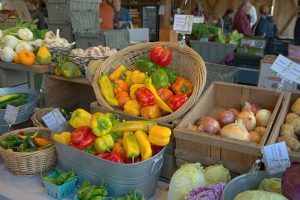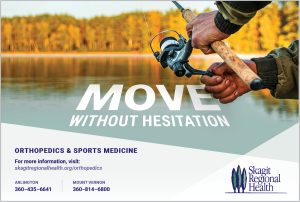How a Healthy Diet can Help Guard Against Falls is contributed by Walton Law in January, 2023, as an online article at VibrantSeniorOptions.com

A diet made up of healthy foods is necessary to maintain health and well-being. It can also help reduce factors that can contribute to falls.
Some common conditions that may lead to Whatcom County elders falling, including in nursing homes, are:
- dehydration
- depression
- nausea and lightheadedness
- fatigue
However, a healthy, nutrient-rich diet is one of the best defenses against all kinds of illness and injuries caused by falling. A healthy diet for elders is crucial to maintaining longevity and wellness and can be a factor to help guard against falls.
Basic Parts of a Healthy Diet
When starting a balanced diet plan, senior citizens should follow some basic rules:
- Keep hydrated by drinking water, keeping soft drinks and juices to a minimum.
- Limit alcohol consumption.
- Eat regularly, without skipping meals.
- Maintain a balanced diet.
Eating with Regularity
Appetites naturally decrease with age. However, to avoid problems such as fatigue and lightheadedness, which can contribute to accidental falls, it is recommended that elders eat at least three wholesome meals per day (typically breakfast, lunch and dinner). If it is difficult to consume three sizeable meals per day, smaller meals and supplemental healthy snacks are a great way to ensure that elders are getting proper nutrition to prevent weakness.
Proper Hydration Can Help Guard Against Falls
Dehydration can cause hypotension (low blood pressure), nausea, dizziness and confusion — all symptoms that can contribute to an increased risk of falling.
To prevent dehydration, it is recommended that the elderly drink 6 to 8 cups (48 to 64 ounces) of fluid per day. Although water is best (and the water is great here in the Puget Sound region), other fluids may be incorporated as well, including herbal teas, whole fruit juices, milk-based drinks and coffee.
Serving Quantities
To achieve balance, it is important to maintain proper portion control. According to the United States Department of Agriculture Choose My Plate website, a balanced diet consists of the following, in equal proportions:
- vegetables and fruits
- natural fibers, grains and starches
- protein sources
Vegetables and Fruits
 The recommended amount of vegetables and fruits is five servings per day. This can come from fresh, frozen, canned and/or dried produce. Try to eat the whole vegetable or fruit to intake the fiber in the skins; don’t just drink fruit juices. Some easy superfruits are acai berries, apples, bananas, cherries and citrus fruits. Your vegetables should be colorful and varied (beets, collard greens, asparagus, red bell peppers and Swiss chard, for example).
The recommended amount of vegetables and fruits is five servings per day. This can come from fresh, frozen, canned and/or dried produce. Try to eat the whole vegetable or fruit to intake the fiber in the skins; don’t just drink fruit juices. Some easy superfruits are acai berries, apples, bananas, cherries and citrus fruits. Your vegetables should be colorful and varied (beets, collard greens, asparagus, red bell peppers and Swiss chard, for example).
Grains, Fibers, and Starches
Grains, fibers and starches provide slow-release energy, helping you feel fuller longer. Additionally, if consumed as a snack, these foods may provide relief from nauseous or lightheaded feelings between meals.
Some examples of foods that fall into this category are:
- breads made of whole oats, whole wheat flour, or “double fiber.” Generally, a denser bread (give it a squeeze) means a better healthier bread that will sustain you longer.
- brown rice, quinoa, whole-wheat couscous, buckwheat or whole grain barley.
- sweet potatoes, parsnips, turnips and similar starches.
- pastas, such as Japanese pastas like Udon or Soba noodles, whole wheat noodles or Kamut pasta. If you are sensitive to traditional wheat products, this last one may be a good choice for your body.
Proteins
Protein provides essential nutrients for body repair. Good sources of protein can be found in the following:
- dairy products (milk, eggs, cheese and yogurt)
- nuts, nut butters and legumes (such as chickpeas and black beans)
- tofu, tempeh, chia or other seeds, such as sunflower seeds
- meat, poultry and fish
The recommended serving amount is equivalent to two or three portions per day.
Fats and Sugars
In small quantities, fats and sugars are essential to a well-balanced diet. Although these are concentrated sources of calories that may induce weight gain, they do provide important fat-soluble vitamins to maintain good health.
Healthy fats that contribute to good health habits are monounsaturated fats and polyunsaturated fats. These can be found in olive, sunflower and corn oils. For additional information regarding oils and how they can work for you, visit the Choose My Plate website or consult your primary care physician or registered dietitian.
Alcoholic Beverage Consumptions
Because alcohol naturally retards and/or impairs motor skills, elders who chose to enjoy alcohol should stay within recommended guidelines for alcohol consumption. The consumption of alcohol also may interfere with prescribed medications. Consult your pharmacist or primary care physician to discuss whether alcohol will negatively interact with any prescribed medications. This is a significant way to help guard against falls due to medication interactions.
Each year, countless Bellingham, Lynden and Ferndale elders sustain injury due to falls. In some instances, falls are the result of elder or nursing home abuse, but in other cases, falls are purely accidental.
What can I do if a Loved One is Injured Because of a Fall?
If you or a loved one has been injured at a facility in Whatcom, Skagit or Island counties, contact the Bellingham, Washington office of Walton Law, APC at 360-543-1010. Or, you can visit waltonlawapc.com/bellingham-office to sign up for a no obligation, free initial case evaluation to answer your questions, explain the lawsuit process and show you how we can help make the best of a bad situation.
Vibrant Senior Options Home Page





















